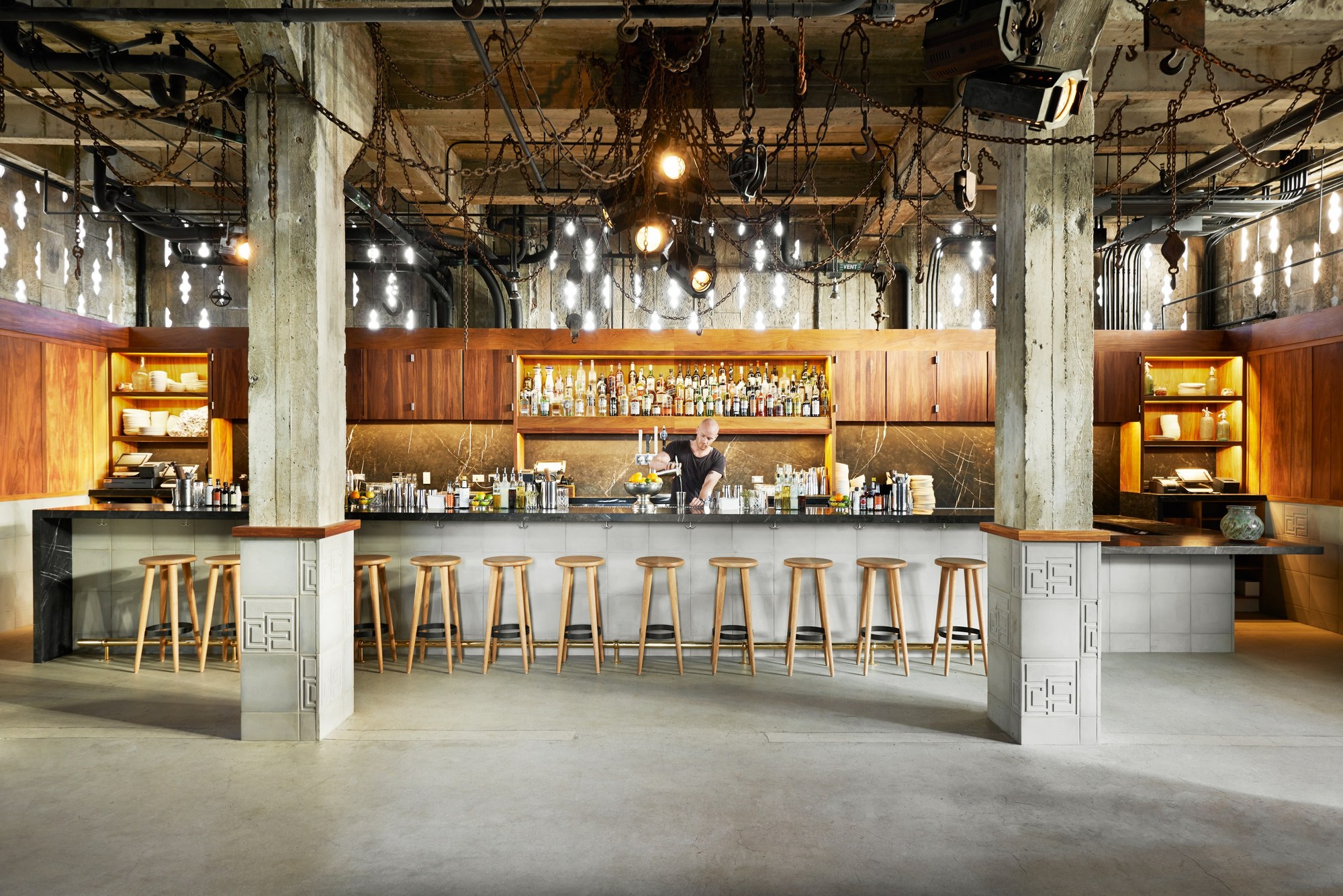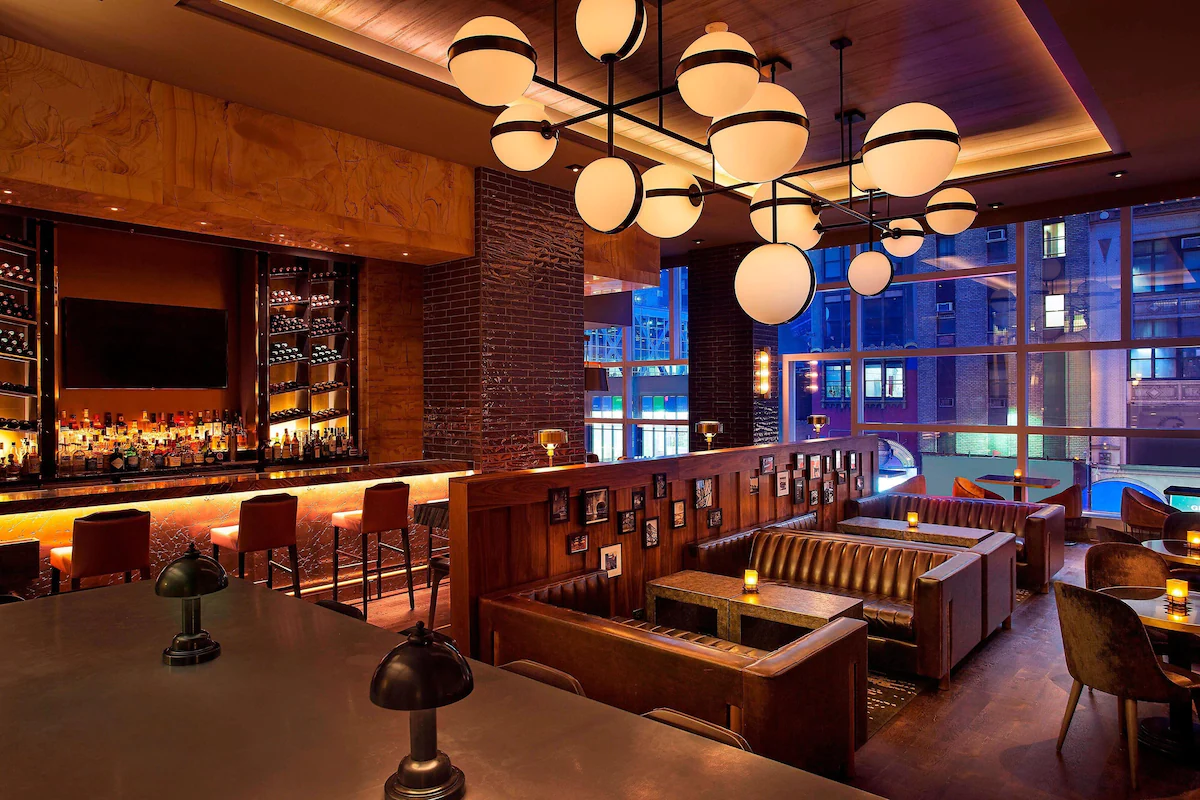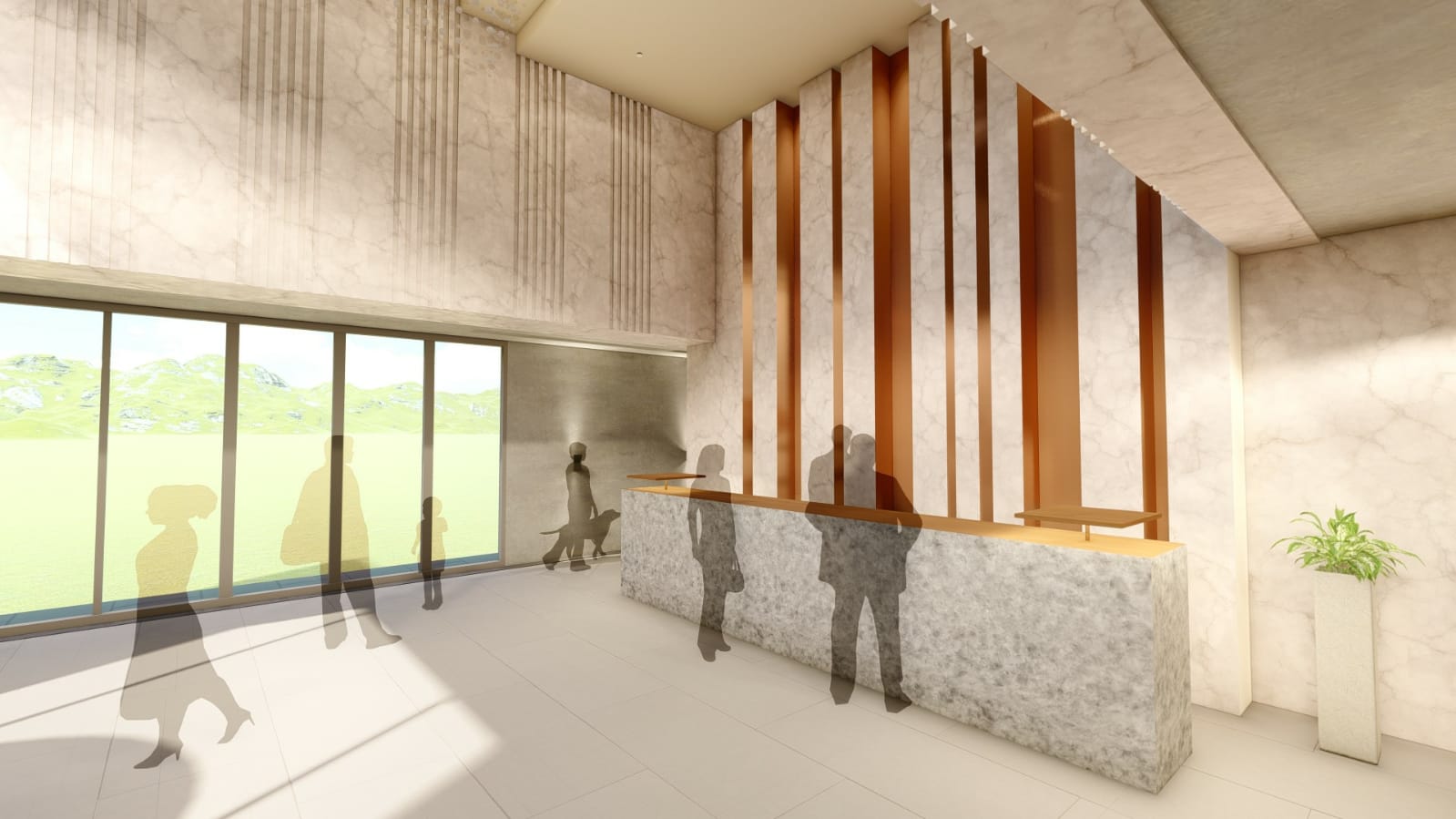- May 2, 2024
- -
Think about the best experience you have had visiting and staying at a hotel. What was it about it that makes you smile and feel like revisiting, in the thought of it? This is what a hotel management group aspires to find out as they are aiming at providing their guests with their dream vacations, leaving them content, and feeling like wanting to come back again. Even though each one of us is unique and therefore is drawn to different experiences and types of services, each passing day and month new trends are emerging in the hotel industry, shaping both hotel management and hotel design approaches to provide brand new experiences for hotel visitors.
“ ‘Contactless Technology’ is a continually growing topic for hotel managements bringing in features such as touchless check-in/check-out, mobile keys, and even self-service kiosks. So, we are beginning to see the footprints of contactless technology in hotel planning and interior architecture.”
Therefore, grasping this relationship between emerging trends and hotel design planning becomes an important area of focus for worldwide hotel investors & developers in the hospitality & leisure field. Let’s now have a look at some of the most recent trends and emerging approaches in the industry and how these reflect into hotel design & management.
As the times are changing with the rise of artificial intelligence and some other leading-edge technologies; “contactless technology” is a continually growing topic for hotel managements bringing in features such as touchless check-in/check-out, mobile keys, and even self-service kiosks. So, we are beginning to see the footprints of contactless technology in hotel planning and interior architecture, which reflect as wider reception areas with enhanced minimalist lines, and self-service kiosk which area positioned in lobbies with just enough space for a relaxed and contactless use. These latest trends not only affect lobby designs, but also bring a whole lot of different approaches to overall hotel management systems. Just recently the world-famous Hilton chain began offering digital key options to its guests, allowing them to unlock their rooms via their smartphones. Just think how hugely this trend may affect and change the approaches for internal planning for hospitality industry, acting as a cornerstone in hotel interior design.
Following the developments with the contactless technologies, other very recent topics emerging in hotel design and management area for sure “Sustainability and Eco-Friendly Design”. With the news concerning global warming and the limited natural sources on the horizon, there is an ever-growing emphasis on the topic of sustainability in the hotel industry, where every day, eco-friendly materials and energy efficient systems come into light. Each day, new firms and formations are established providing the industry with better composed “recycled materials” and products; every passing day a newly and better designed energy-efficient lighting system is brought into the market. Therefore, designers and developers, as leaders in the industry should be more and more skilled at incorporating them into our plannings and designs and should be open and willing to incorporate these new types of recycled materials, energy-efficient lighting systems and green walls into their hotel designs and plannings. The Westin Hotel located in New York Times Square stands out as a very explicit example of this skilled implementation of eco-friendly design with its initiatives where they use eco-friendly paints and promote energy conservation.
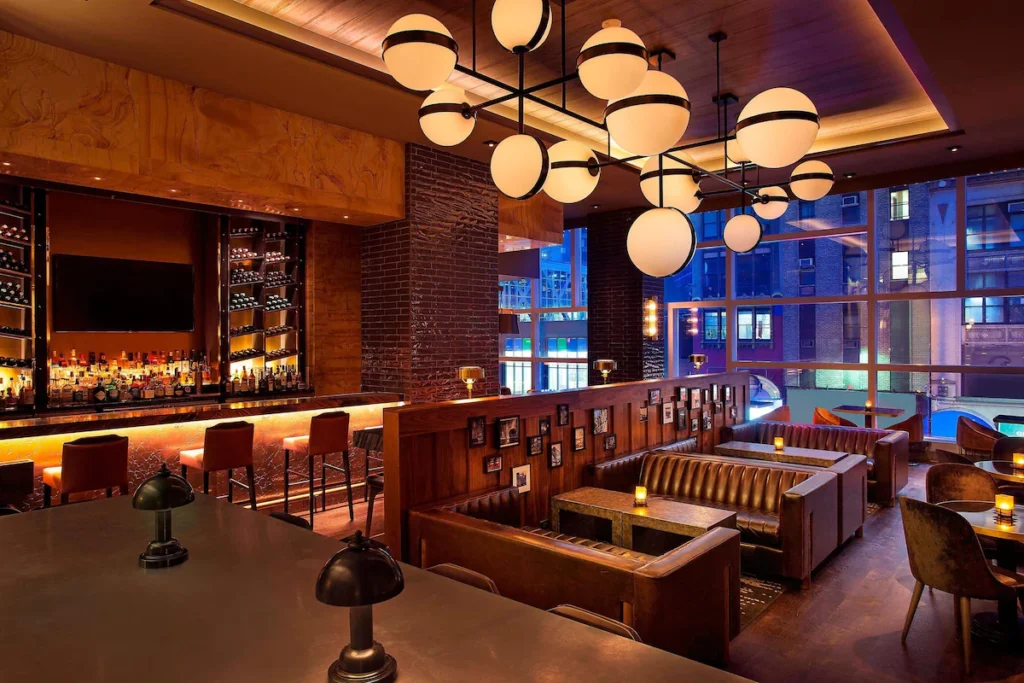
The Westin Hotel, New York
Not only the global topics such as contactless technology and eco-friendly design are beginning to shape the future of hotel design and management industries but also the topics of “Personalization and Customization” are now starting to play an important role in the way hospitality and leisure projects are to be designed. Nowadays, hotel brands and companies are incorporating more and more ideas such as flexible room layouts and the integration of technology into their designs and plannings. As to further open the case; a hotel that allows the guests to customize their room settings with smart devices can stand as a very good example of a leading-edge design towards this trend. Marriott’s M Beta Hotel is a very direct reflection of this approach where guests are offered personalized smart rooms as they can control the lighting and the temperature within the room.
Speaking of leading-edge technologies, integration of Internet of Things (IoT) is also another growing branch of technology which by its integration hotel management and design is taken a step further, while at the same time bringing about new requirements for robust technology infrastructures within hospitality buildings. Imagine a hotel lobby with smart technology that controls lighting and temperature where hotel management costs directly go down while at the same time providing optimum relaxation and comfort for guests. As a fine example; 1 Hotel in New York allows guests to manage room features through a central control panel. In the overall sense IoT integration stands as a promising field of technology that will shape hotel design and management in our near future.
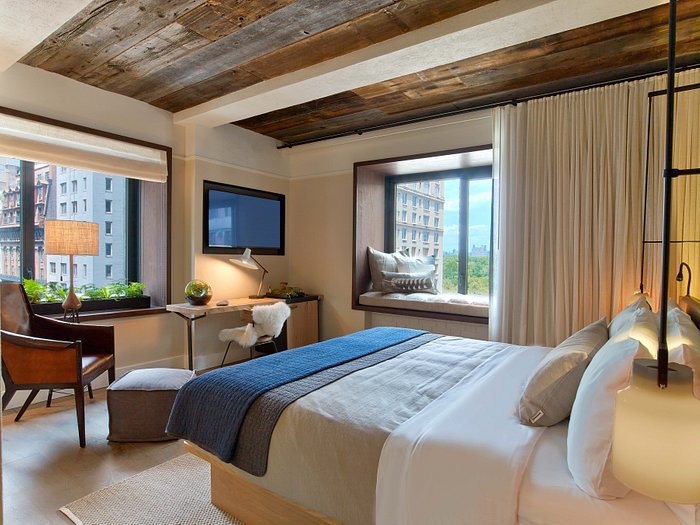
1 Hotel Central Park – New York
Standing as a parallel field to IoT technology “Data Analytics and Business Intelligence” should also be regarded as a new and important emerging trend in the hospitality field. Secure data storage and business intelligence are becoming increasingly important and turning into primary factors for internal space designs of hospitality buildings. Hotels now need secure server rooms and open office spaces for data teams depending on their size and management type. A notable example of a hotel that uses data analytics to improve guest satisfaction and operational efficiency is MGM Resorts International. Their data-driven approach leads the resort to customize interior spaces, optimize room configurations, and integrate smart technology for a seamless guest experience.
Following technology related fields of improvement, health and wellness focused amenities also come in as another rising theme for the future of hotel industry. There are many ways where hotels with fresh marketing and design mindsets have implemented this trend towards health and wellness into their organizations in the shape of dedicated wellness areas such as juice bars and spa corners in hotel lobbies. The Four Seasons Hotel New York Downtown is a very complementary illustration of this approach as you may find small spa treatments and relaxation spaces integrated into its lobby.
Another space related trend that comes into light is the use of “Hybrid Spaces” which can serve in hotel design as multiple functions to the users, by just needing to make small changes in the configuration of the internal planning. There are many newly opened hotels which demonstrate hotel lobbies that double as a co-working space with modular furniture and charging stations. The Ace Hotel’s multifunctional lobbies are a prime example of this approach for Hybrid Spaces.
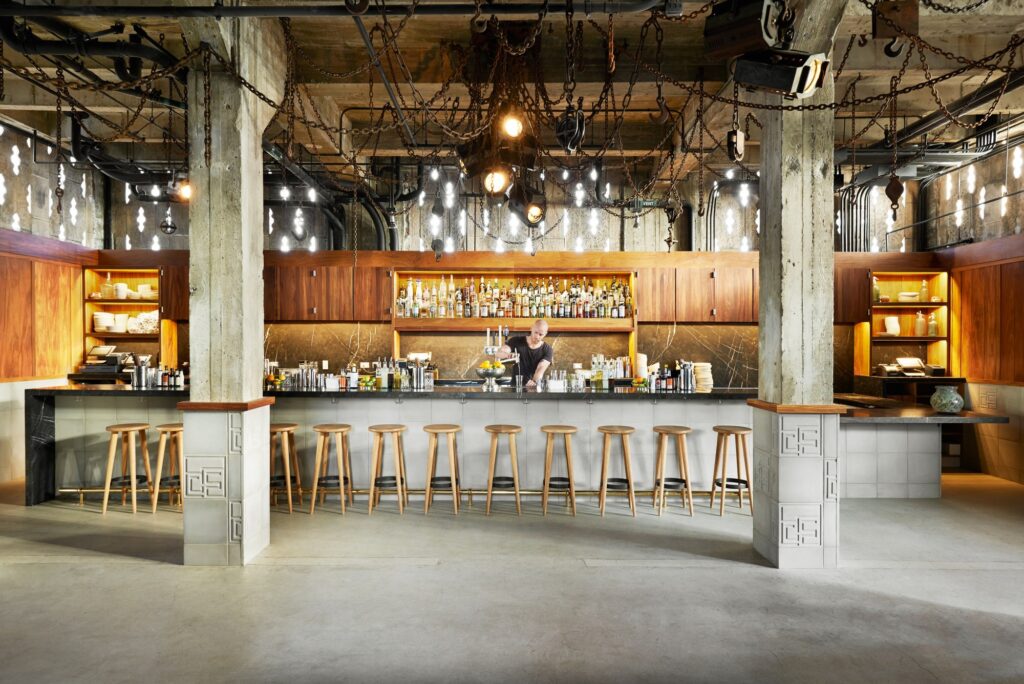
Ace Hotel Dowtown, LA, photography by Spencer Lowel
Lastly to provide a leading-edge memorable guest experience “enhanced security measures” and how this can shape hotel design and management, is the topic to bring into focus. Nowadays, hotel managements are seeking to integrate discreet surveillance cameras and secure checkpoints into their lobbies and internal spaces. A very direct example of this could be how Hyatt Hotels have integrated security features into their lobbies for guest safety. Designers should work carefully to integrate these features into their designs seamlessly to maximize security coverage without compromising the aesthetic appeal and comfort of the space.
Having captured all the latest developments in hotel industry it can be clearly stated that these emerging trends will continue to shape the way designers, architects and hotel managements groups work towards providing more integrated designs and services in accordance with these developments. From the latest technology developments such as contactless technology, personalization, and customization, IoT to more in-life movements such as ecofriendly design, wellness amenities and hybrid spaces, these imminent trends should be embraced by every professional within hospitality industry to create innovative and guest-friendly hotel environments at a time when global necessities are in a head-to-head competence with technological advancements in a fast-running race.
- 3336
- 0
